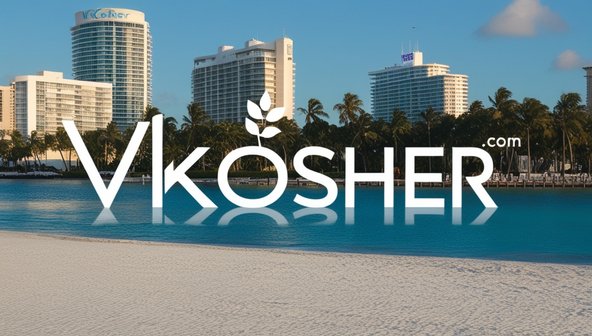The Essentials of Kosher Whey Protein
In the world of dietary supplements and fitness nutrition, whey protein has emerged as a cornerstone due to its excellent protein quality and numerous health benefits. For individuals adhering to specific dietary laws or seeking products that align with their values, kosher whey protein represents a critical option. This article delves into the fundamentals of kosher whey protein, exploring its significance, production processes, and advantages, while also addressing common misconceptions and providing guidance on selecting the best product for your needs.
Understanding Whey Protein
Whey protein, a byproduct of cheese production, has gained widespread recognition for its high biological value, which signifies its efficiency in promoting muscle growth and repair. Derived from milk, whey protein is rich in essential amino acids, making it a favored choice among athletes, bodybuilders, and individuals looking to enhance their protein intake. The primary types of whey protein include concentrate, isolate, and hydrolysate, each varying in protein content and processing methods.
The Concept of Kosher Certification
Kosher certification is a vital aspect of adhering to Jewish dietary laws, which are derived from the Torah and interpreted through centuries of rabbinical tradition. To be deemed kosher, a product must meet stringent criteria, including the sources of its ingredients, the methods of its preparation, and the avoidance of cross-contamination with non-kosher items. Kosher certification ensures that a product complies with these guidelines, making it suitable for consumption by individuals who observe these dietary laws.
Kosher Whey Protein: Bridging Nutrition and Tradition
Kosher whey protein combines the nutritional benefits of whey protein with the requirements of kosher dietary laws. This product is manufactured in facilities that adhere to kosher standards, ensuring that every step of production, from sourcing ingredients to final packaging, is compliant with Jewish dietary regulations. For those who strictly follow kosher practices, this product offers an ideal solution for meeting their protein needs without compromising their dietary principles.
The Production Process of Kosher Whey Protein
The journey of kosher whey protein begins with the careful selection of milk from dairy farms that are certified kosher. This milk undergoes pasteurization and is then processed into whey through the cheese-making process. To ensure the product remains kosher, the entire production process is supervised by a rabbinical authority. This supervision includes verifying that all equipment and utensils used in processing are kosher and that no cross-contamination occurs with non-kosher products.
In addition to adhering to kosher standards, kosher whey protein must be free from any additives or ingredients that are not kosher. This includes avoiding the use of gelatin, which is often derived from non-kosher sources. The result is a whey protein product that is both high in quality and compliant with kosher laws.
Benefits of Kosher Whey Protein
Kosher whey protein offers several advantages beyond its adherence to dietary laws. It provides the same high-quality protein benefits as regular whey protein, supporting muscle growth, recovery, and overall health. Additionally, kosher whey protein is often produced with higher standards of cleanliness and quality control, reflecting the rigorous requirements of kosher certification.
One notable benefit of kosher whey protein is its potential to be more easily digestible for some individuals. The production process may eliminate certain impurities and contaminants that could affect digestion. This makes kosher whey protein a suitable choice for those with sensitive digestive systems or those who experience issues with other protein supplements.
Addressing Common Misconceptions
There are several misconceptions about kosher whey protein that are worth addressing. One common belief is that kosher whey protein is of lower quality compared to non-kosher options. In reality, kosher whey protein meets the same high standards for protein content and purity as non-kosher whey protein. The main difference lies in the adherence to kosher dietary laws, not the nutritional value of the product.
Another misconception is that kosher whey protein is significantly more expensive than its non-kosher counterparts. While kosher certification can add to the cost of production, many consumers find that the benefits of adhering to their dietary principles outweigh the additional expense. Additionally, the price of kosher whey protein has become more competitive as the market for kosher products continues to grow.
Choosing the Right Kosher Whey Protein
Selecting the right kosher whey protein involves considering several factors to ensure you are getting a high-quality product that meets your dietary needs. Start by looking for products with a reputable kosher certification from a recognized authority. This certification ensures that the product has been manufactured in accordance with kosher laws and is genuine.
Next, consider the type of whey protein that best suits your needs. Whey protein concentrate is a cost-effective option that provides a good balance of protein and other nutrients. Whey protein isolate offers a higher protein content with minimal fats and carbohydrates, making it ideal for those focused on muscle building and fat loss. Whey protein hydrolysate is pre-digested, which may aid in faster absorption and reduced digestive discomfort.
It is also important to check the ingredient list for any additives or fillers that may not align with kosher standards. Opt for products with minimal ingredients and those that clearly indicate their kosher certification on the packaging.
The Future of Kosher Whey Protein
The demand for kosher whey protein is expected to grow as more individuals seek products that align with their dietary and ethical beliefs. This trend is likely to drive innovation and improvements in the quality and variety of kosher whey protein available on the market. As the industry evolves, consumers can anticipate a broader range of options, including flavored whey proteins and those that cater to specific dietary needs, such as gluten-free or organic.
Conclusion
Kosher whey protein represents a valuable intersection of nutritional science and dietary tradition, providing a high-quality protein supplement that adheres to kosher dietary laws. By understanding the production process, benefits, and selection criteria for kosher whey protein, individuals can make informed choices that align with their health goals and ethical values. Whether you are an athlete, fitness enthusiast, or someone who simply values adherence to kosher principles, kosher whey protein offers a reliable and effective solution for meeting your protein needs while respecting your dietary practices.




